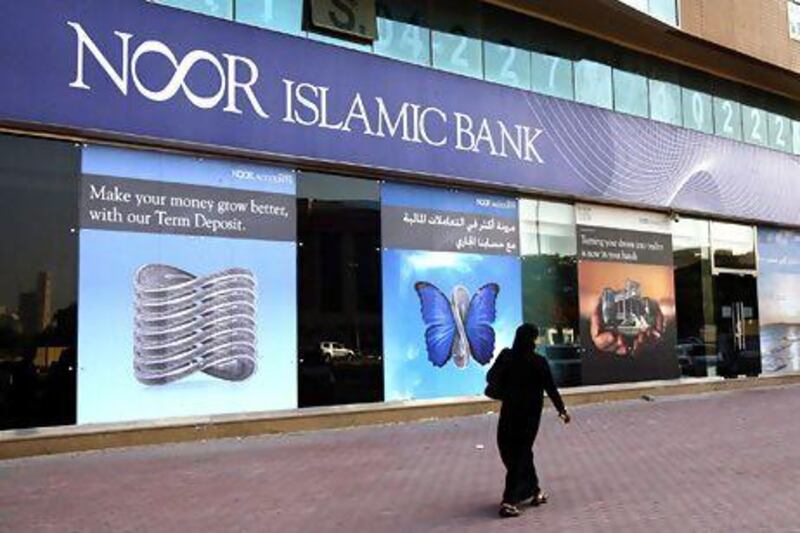Banks in the UAE are hoping to capitalise on a wave of overseas interest in Dubai property as international property speculators pile back into the country.
Noor Islamic Bank yesterday said that it had agreed a tie-up with Emaar Properties to offer off-plan mortgages to non-UAE residents on the developments it is marketing overseas.
A Noor spokeswoman said that the bank would offer loans at up to 85 per cent of a property's purchase value for terms of up to 30 years and for a maximum of Dh10 million.
"The bank has seen great demand for our home finance package - from nationals and residents," said John Chang, the head of retail banking at Noor. "We are extending financing to non-residents who wish to invest in property in the UAE."
Last month hundreds of UK nationals and residents queued outside the Four Seasons hotel on London's Park Lane at Emaar's London roadshow to pay £5,000 (Dh28,042) deposits on Dubai off-plan homes. The developer has also held roadshows in Saudi Arabia, India, Qatar and Singapore.
The mortgages offered exceed new Central Bank rules expected to come into force this year capping loans to expatriates resident in the UAE at 75 per cent of a property's purchase price.
Noor joins an array of other banks including Tamweel, RAK Bank, Barclays and HSBC, which have all reopened their doors to non-resident mortgages following the global financial crisis - a type of loan analysts view as higher risk than traditional mortgages.
"Non-resident mortgages are a very risky category. There are often problems identifying individuals and if there is a legal dispute it is very hard for the bank to serve notice on the investors. For these reasons banks tend to charge more for this sort of product," one Dubai-based banking analyst told The National.
"However, providing property prices keep going up the risk can be worthwhile for some banks and from a position where there was no demand there is now some demand for these products," he added. According to Jones Lang LaSalle house prices in Dubai rose 18 per cent over the 12 months to the end of March.
The news comes following a wave of international capital which has been returning to the UAE economy since last year. According to data from the Bank for International Settlements released on Sunday, lending by international banks to the Emirates' economy grew by the most in the final quarter of last year since September 2008.
Since the end of last year, the UAE's stock markets have soared as they attracted long-term international capital from overseas, with the Dubai Financial Market General Index up 49.3 per cent on a year-to-date basis. The Abu Dhabi Securities Exchange General Index also rose 36.5 per cent during the same period.
At the start of the year, concerns about the inflating Dubai property bubble prompted the UAE Central Bank to propose limiting property loans to 50 per cent of the purchase price for first-time buyer expatriates and 70 per cent for UAE nationals buying their first property. The announcement caused a standstill in the Dubai property market until the Central Bank made it known it was rethinking the proposals.
[ ghunter@thenational.ae ]





